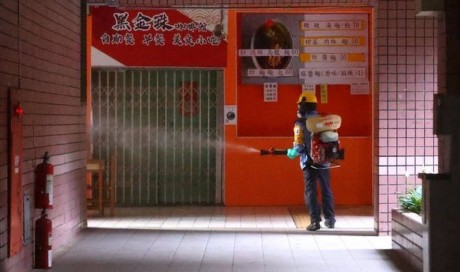India should be prepared "and get accustomed" to more Chinese infrastructure and roads in not only Doklam but in border areas in Tibet and Xinjiang, according to leading Chinese strategic expert Victor Gao Zhikai.
Gao, who served as interpreter to former Chinese leader Deng Xiaoping, told India Today that China would be within its rights to continue road construction in Doklam, which was suspended by Beijing on August 28, ending a 72-day stand-off between India and China.
While there is relief in China that the stand-off was defused before Sunday's BRICS Summit, the sense is that the suspension may, however, be temporary and perhaps prompted by the meet in Xiamen which will be attended by Prime Minister Narendra Modi.
Speaking to India Today, Gao said India should "get accustomed" to China's road building.
"Over the past several decades, China has the best track record in infrastructure projects, including roads and highways," said Gao. "India will need to get accustomed to the fact that China is the largest, most effective and powerful road builders. In Doklam if China is building on the Indian side of the border, India will have the legitimate reason to disagree. However, if China is building connectivity projects and roads on the Chinese side of the border as the Chinese government has insisted, then no other country has the right to intervene. The roads themselves are actually neutral and India should be accustomed to more beefed up Chinese infrastructure not only in Doklam but in other parts of Tibet."
At the same time, Gao said Beijing doesn't want war, and suggested that one reason for the deescalation was a realisation, by both sides, that even a limited conflict could easily spiral out of control.
COULD HAVE FLARED UP INTO A BORDER WAR
"The situation could have flared up into a border war," Gao said. "And once there is a border war, neither China nor India can control the magnitude or course of development. A small border war may eventually have the possibility of degenerating into a huge war and both India and China will suffer huge consequences for that. Therefore, for any leader that wants to be a great leader in China and India, we need to have all the sanity we can muster and the great vision, and stabilising the situation is the best course. Resorting to force is the last resort."
In China, there is a sense of relief that Doklam was defused before the BRICS Summit. Although Prime Minister Modi at no stage suggested he would not travel - in fact, the PM instructed senior ministers to attend every high-level pre-BRICS ministerial meeting in China even amid the stand-off - some Chinese officials were concerned that a no-show would greatly embarrass President Xi Jinping as host of the summit.
"It is a great development that PM modi decided to attend the summit and this bodes well for solidarity among BRICS countries even when some of them have been plagued with difficulties," said Gao.
This is especially because China has placed great emphasis on the grouping as one vehicle to push its plan of carving a greater global role for itself, and is pushing the idea of BRICS Plus to bring in more countries.
BRICS PROSPECTS
"Not only the five BRICS countries could benefit and the rest of the world by engaging in dialogue, but more countries are very much interested in becoming observers or eventually even applying for membership to BRICS," he said. "I know for sure there are major countries exploring the possibility of eventually joining BRICS."
This is also because Beijing sees the grouping as one vehicle to push its global influence and challenge the US.
"When you see major challenges to free trade, globalisation and the right way of doing business across international borders, when we see Brexit happening and the EU under huge amount of pressure, when we see sabotage of the Trans Pacific Partnership and renegotiation of NAFTA, the BRICS framework is a shining example of a new way of promoting globalisation and free trade."
Share This Post












